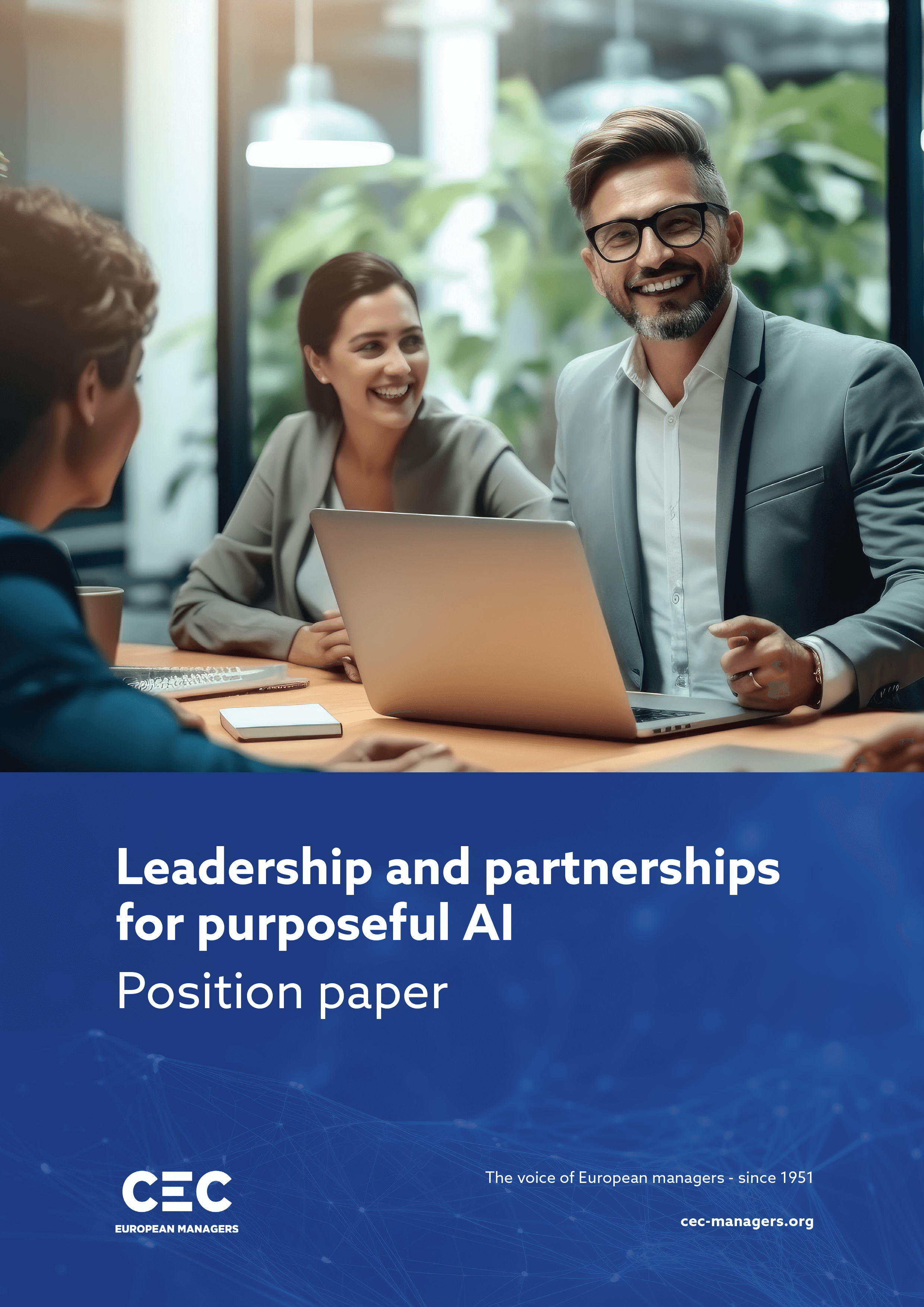ESOMAR Citizen Insights Summit: Charting the Future of Data-Driven Democracy and Responsible Innovation
On 19 February 2025 in Brussels, the ESOMAR Citizen Insights Summit convened an assembly of experts, policymakers, industry leaders, and civil society representatives.
The event explored the intersection of data-driven insights, public policy, and democracy. With the overarching goal of fostering a more engaged and informed society, the summit underscored how advanced analytics, public opinion research, and emerging technologies are shaping policy-making and redefining democratic processes.
At the heart of the summit were discussions centered on leveraging insights for democratic renewal. Key takeaways from the event included:
- Insights for Democracy: Strengthening policy-making through robust data and research.
- Rebuilding Trust: Using transparent insights to counteract public distrust in institutions.
- The Role of AI: Revolutionizing data analysis to inform decision-making in real time.
- Industry Collaboration: Emphasizing the power of partnerships between public institutions and private sector experts.
- Emerging Innovations: Showcasing technologies that are reshaping the landscape of the insights industry.
- Speakers and panelists delved into these themes, reflecting on how data informs policy and provides a vital counterbalance to polarisation and emotional rhetoric in today’s society.
From Post-War Beginnings to Global Influence
ESOMAR’s storied history set the backdrop for the summit. Founded in 1947 and initiating self-regulation for public opinion data as early as 1948, ESOMAR has evolved into the world’s largest network of insights professionals, now spanning 130 countries and encompassing over 12,000 members.
This legacy has enabled ESOMAR to contribute significantly to landmark legislative efforts in Europe, including the General Data Protection Regulation (GDPR), the EU Media Freedom Act, the EU Platform Workers Directive, and the Artificial Intelligence Act.
Over the decades, ESOMAR has transitioned from its early focus on public opinion data to playing a pivotal role in guiding policy-making at the highest levels.
In fact, as early as the 1960s, the EU Parliament’s Directorate-General for Communication began exploring how ESOMAR’s data and research could underpin policy decisions—a practice that has matured into today’s global standard for evidence-based governance.

Xabier Palacio, Head of Intelligence, Advocacy, and Standards at ESOMAR, and Joaquim Bretch, Director General at ESOMAR (Universitat Autònoma de Barcelona), emphasized the importance of ethical, transparent, and scientifically robust research methodologies. Ennio Armato, CEO of FFIND BEYOND DATA—the event’s sponsor—reminded the audience, “To collect information from EU citizens, we need to be very responsible and transparent,” highlighting the expansive reach and societal relevance of modern data collection practices.
Innovating Democracy in the Age of Artificial Intelligence
Central to the summit’s discourse was the transformative role of Artificial Intelligence. Christine Tresignie, Director of Ipsos European Public Affairs, noted,
“Artificial Intelligence is still a black box in many aspects: That is why we need regulation. European AI Act is a good start. We need to know that AI is a transparent industry and slowly integrate it into our way of working, making sure it is not biased.”
Christine Tresignie
Director of Ipsos European Public Affairs
Her insights were echoed throughout the day as experts discussed how AI can be harnessed to combat disinformation and bolster democratic institutions.
AI is envisioned as a key instrument in ensuring that “people need to be heard in the process toward AI implementation,” paving the way for innovative and accountable decision-making.
Tanja Kimova, Head of Evidence Continental Europe at Verian, further illuminated this point by outlining the evolution of public opinion research.
“Everything should be transparent but also easy to understand”
Tanja Kimova
Head of Evidence Continental Europe at Verian
She stressed the benefits of hyper-mixed mode designs, a two-step process that, while powerful, raises concerns about bias. “The biggest concern of online research is BIAS,” she added, reminding attendees that while statistics can persuade, they can also be misused if not rigorously scrutinised.
“People need to be heard in the process toward AI implementation.”
Panel Discussions: Bridging Research, Technology, and Governance
A dynamic panel discussion brought together heavyweights from the private and public sectors, including David Mair, Head of Unit at the Joint Research Centre of the European Commission; Christine Tresignie; and, again, Tanja Kimova.
Their debate touched on the evolving role of research in evidence-based policy-making, the digital transformation of data collection, and the challenges of ensuring data quality and transparency in an era of rapid technological change.
One statement captured the essence of the day’s discussions:
ESOMAR’s job is to bring evidence to EU Commission’s work.
This sentiment was reinforced by calls for social science to be an essential tool for fostering democracy and navigating a polarised society.
Panelists also highlighted the need for clear accountability in data research. “Data Researchers provide facts with confidence: The use of it by decision makers and policymakers is not our responsibility,” noted one speaker, shifting the onus of interpretation onto political leaders while stressing that research must remain as unbiased as possible.
During the subsequent Q&A session, representatives from NGOs and civil society raised pointed questions such as, “Does AI think about a woman like me, old, racialised, etc…?” and “Are you involving NGOs and social partners into your research?.”
These inquiries underscored the pressing need for inclusivity and accountability in deploying AI and data analytics.
While data and AI are crucial, it is the human element—managerial insight and leadership—that ultimately bridges the gap between technological potential and societal benefit. As one speaker at the summit aptly put it,
“Data is not the only foundation for sleeping strategies, but seeing their impact.”
As the summit drew to a close, the conversation turned toward the future. Experts forecast that by the end of June 2025, regulations concerning transparency, security, and the principle of “do no harm” in Artificial Intelligence will be approved—marking a critical step forward in responsible AI governance.

CEC European Managers‘s position paper on Artificial Intelligence endorses the human-leadership approach of AI in the workplace. You can download it here.
Current challenges, including the cost of living, economic uncertainty, and issues particularly impacting young people—such as climate change and housing—were also brought into focus.
Christian Mangold, Director General for Communication at European Parliament explained how this institution is tackling EU’s society pulse. With 42% of citizens holding a positive view of the EU Parliament, nearly 50% consistently voting in EU Elections, and 7 in 10 believing that the Union significantly impacts their lives, “it is clear that data-driven insights remain central to both policy formation and public sentiment,” said Mangold.
Through strategic collaborations between public institutions and private entities, and with influential social partners like CEC European Managers leading the charge, the future of evidence-based policymaking looks poised for transformative change. By embracing responsible innovation and ensuring that new technologies serve the common good, Europe can continue to set a global standard for democratic governance in the digital age.
The fact-based dialogue between data analytics, democracy, and leadership can lead to a profound deepening of European policymaking for years to come. A final inspiration takeaway from the summit could be summarized with the quote
Without data, you’re just another person with an opinion
W. Edwards Deming




